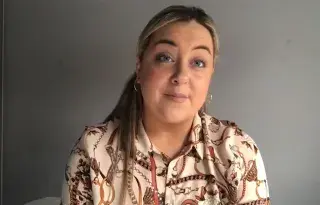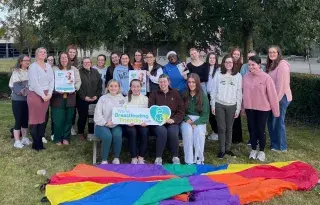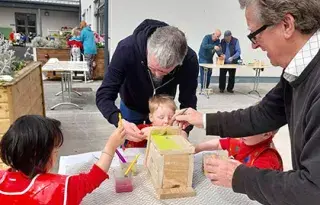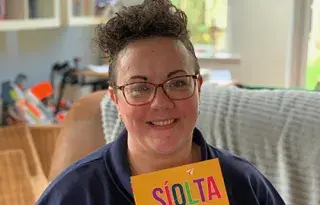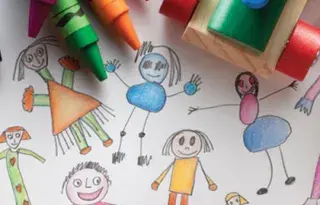BA (Hons) in Early Childhood Education and Care
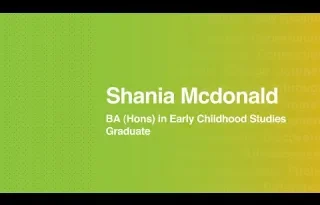
Search to find a different course
Course Overview
This course provides comprehensive knowledge and understanding of the early years of a child’s life. This course is focused on the holistic development of young children and aims to equip students with the necessary skills to work effectively with children, families, and communities. Students explore key theories, research findings, and practical approaches related to child development, learning, and wellbeing.
The curriculum covers a wide range of topics, including early literacy and numeracy, play-based learning, inclusive education, and family engagement. Students also gain insights into early intervention strategies, assessment methods, and effective communication techniques with young children. In addition to theoretical knowledge, the course includes professional practice placements in each year of the programme in a variety of early years settings. These hands-on experiences enable students to apply their learning in real-world contexts, observe child development firsthand, and develop essential skills in working with children and families.
What makes this course different
Pathway to Primary Teaching
Graduates can choose to study a Professional Masters in Education Course (Primary Teaching) to progress into Primary School teaching.
Placements Each Year
There is a Professional Practice Placement in each of the four years which provides students with an opportunity to learn from experience through supervised practice.
Understanding the Industry
Early Years Education and Care is a field dedicated to understanding and enhancing the lives of young children. It combines theory, research, and practical applications to provide a solid foundation for those working with and studying the unique developmental needs of young children. Early Years Education and Care an interdisciplinary field that focuses on the physical, cognitive, social, and emotional development of children from birth to 6 years of age. The field seeks to understand how children learn, grow, and interact with their environment during the crucial early years of life.
Career Opportunities
This course is designed to meet the growing demand for early childhood specialists across the diversity of early childhood care and education services and addresses the needs of the public, community and private sectors.
Future Careers:
- Early Years Educator
- Education Consultant
- Further Education Tutor
- Education Mental Health Practitioner
- Family Support Worker
- School Age Childcare Educator
- Play Specialist
- Learning Mentor
- Preschool Education Inspectorate (DES)
- Preschool Inspectorate (TUSLA)
In these areas:
- Policy development and evaluation agencies within government departments, semi-state bodies, and NGOs
- Nurseries and pre-schools
- State and independent schools
- Local authorities
- Local and national charities
- Health authorities
Course Delivery and Modules
- Aistear in Action
- Promoting Well-being of the child and Early Years Educator
- Learning to Learn in Early Childhood Education and Care
- Preparation for Professional Practice 1: The Student Educator
- Theories and Perspectives on Play
- Child Development 1
- Professional Practice 1: Early Childhood Education and Care Setting
- Learning Language and Loving It (HANEN)
- Observation Assessment process
- Professional Practice 2
- Inclusion 1: Participation for All Ways of Learning
- Self-Regulation in Early Childhood
- Speech, Language and Communication Needs
- Introducing Evidence-Based Practice
- Child Development 2: Playing on the Shoulders of Giants
- Creative Arts 1: The Visual Arts and Music in Early Childhood Education
- Exploring Numeracy, Literacy and Digital Literacy in Early Childhood
- Working with Children, Families and Communities
- Pedagogical Framing for Educational Sustainability Development
- Applied Law and Regulation for Early Years Educators
- Consultation and Evaluation
- Entrepreneurship, Business and Management Skills in Early Years
- Inclusion 2: Equity, Equality, Diversity and Inclusion in Early Years
- Leadership and Advocacy in Early Childhood Education & Care
- Creative Arts 2: Pretend Play, Storytelling, Music & Children's Literature
- Outdoor Play and Physical Activity in Early Childhood
- Professional Practice 3
- Social Policy and the Voice of the Child
- Early Years Curriculum in the Irish Context
- Early Years Action Research Project (Part 1 of 2)
- Professional Practice 4
- Reflective Professional Educator and Effective Pedagogy
- Identity & Psychological Well-being in Early Childhood
- School Age Childcare
- Contemporary Practice: The Early Years Perspective
- Early Years Action Research Project (Part 1 of 2)
Work placement
Work placement is an integral part of the course with a Professional Practice Placement in each of the four years which provides students with an opportunity to learn from experience through supervised practice.
- In first year, the placement is with typically developing children in full day-care (10 weeks)
- In second year, the placement will be with children who have additional needs (7 weeks)
- In third year, the student can choose a specialist placement of particular interest. This may be an international placement (6 weeks)
- In fourth year, the student group, manage and run a parent & toddler group in the college (1 day a week over the semester)
Professional Accreditations
The programme meets the requirements of the Professional Award Criteria and Guidelines (PACG)
Education Progression
Graduates can choose to study a Professional Masters in Education Course (Primary Teaching) to progress into Primary School teaching.
Certificate in School Age Childcare New course
Fees and Funding
Please find information on fees and funding here: www.dkit.ie/fees
Entry requirements
Standard entry requirements apply. There are no special entry requirements for this course.
- Standard Requirements for Leaving Certificate Applicants
- Standard Requirements for UK/NI Applicants
- Standard Requirements for QQI-Further Education Applicants
- Mature Applicants: Minimum of 23 years of age on January 1st of year of application.
Please Note: Due of the work placement element of this course, applicants must successfully pass Garda/Police vetting for all jurisdictions where the student was/is resident. Early Childhood Studies students are also required to complete a vaccination programme in advance of placement.
Recent CAO points
How to apply
Apply on CAO
All standard entry first-year applicants must apply for entry through the CAO. See Important application dates for CAO and information for specific applicant types below:
Advanced Entry & Transfer Applications
Advanced Entry is for applicants who have previous educational achievements and/or work experience and want to be considered for direct entry into year 2, 3, or 4 of a course. This includes students looking to transfer to DkIT from another Higher Education provider.
International Application (non-EU)
International Applicants (not from or living in the EU) can apply through an agent or directly to DkIT to study this course.
Ask us a Question
If you have a question about the BA (Hons) in Early Childhood Education and Care please ask it below and we will get back to you.
Course News
View all NewsDisclaimer: All module titles are subject to change and for indicative purposes only. All courses are delivered subject to demand and timetables are subject to change. Elective Module options will only run subject to student numbers. The relevant Department will determine the viability of each elective module option proceeding depending on the number of students who choose that option. Students will be offered alternative elective modules on their programme should their preferred elective option not be proceeding. Award Options for Common Entry Programmes: The relevant Department will determine the viability of each award option proceeding depending on the number of students who choose either option. If the numbers for one of the Award options exceed available places, students for this option will be selected based on Academic Merit (highest grades).

